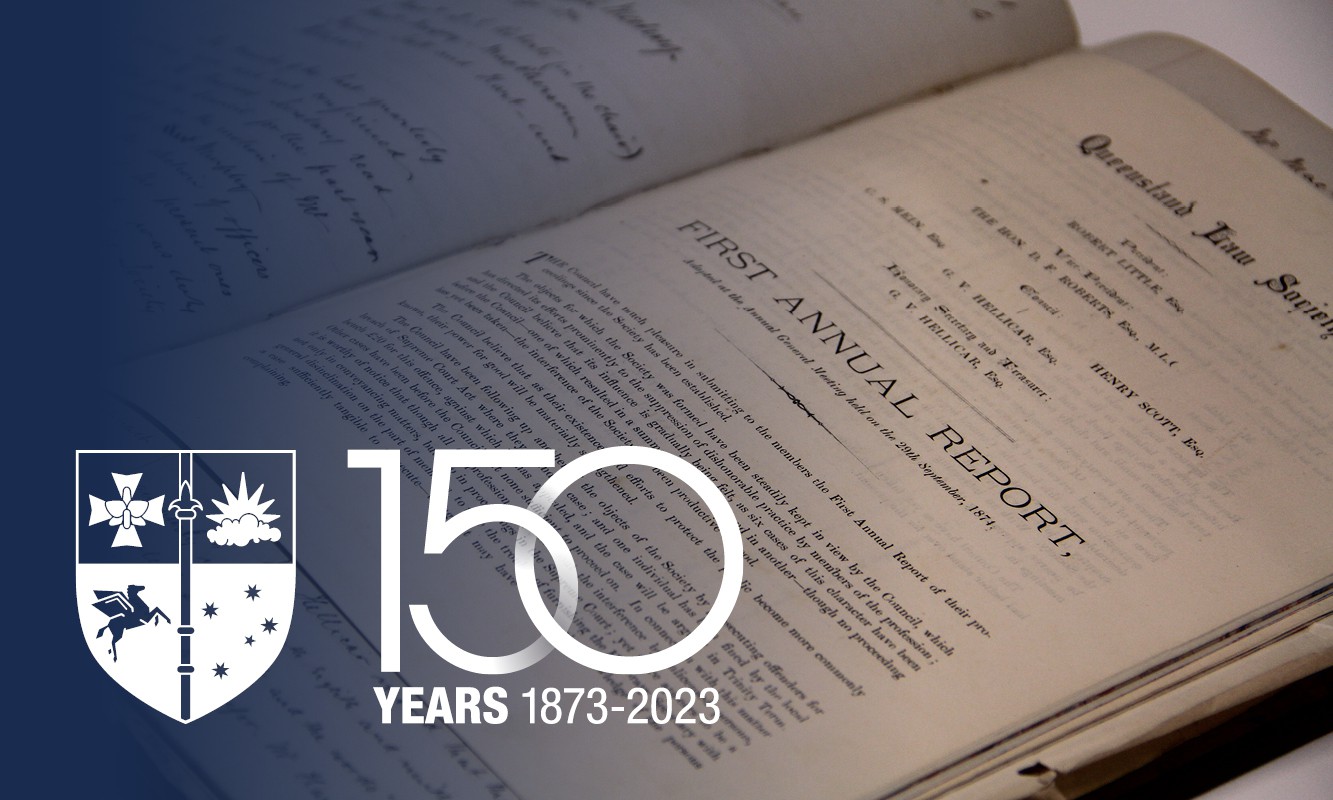News

The Pro Bono Team of the Year Award recognises an outstanding team contributing to improving equal access to justice.

The Kuskie and Gill families were celebrating after Monday's Admission Sitting at Banco Court, Brisbane.
Acting President Stilgoe said there was “no doubt that this decision will dismay many who are vitally concerned with GHG (greenhouse gas) emissions and global warming”.
From the end of September 2023 to March 2024, a series of annual reports from regulatory bodies have been tabled in the Queensland Parliament.
Profession updates
District Court issues PD on access briefs
19 April 2024
BCCM Act reforms start 1 May
17 April 2024
PD on expert evidence issued
15 April 2024
PD: Direct Access Briefs
10 April 2024
Latest
- Perspectives
- Case notes
- Family law
- Family law
- Case notes
- First nations
Features

Celebrating our members
QLS celebrates our loyal members who have contributed a remarkable 25 and 50 years to the Society and the profession.

Excellence in Law Awards
Meet this year’s QLS Excellence in Law Award winners. Read about their achievements and we showcase photos from the 2023 event.

150 years: Special series
This year, QLS is celebrating the 150-year anniversary since the first law society in Queensland with a series of feature articles.
Perspectives
- Perspectives
Caxton Community Legal Centre's Cybele Koning and Kristin Ramsay talk about the service's move into the CBD and the need for volunteers.
Kristin Ramsey, Cybele Koning
- First nations
The UQ/Prisoners' Legal Service Deaths in Custody Project was established in 2016. It is led by law students and supervised by Professor Tamara Walsh.
- Perspectives
Mediate early and more than once if you’re not successful the first time.
Toby Boys
Careers
In practice
- Case notes
Harvey v Minister for Primary Industry and Resources [2024] HCA 1
Dr Michelle Sharpe
- Family law
Gresham (No 4) [2023] FedCFamC1F 1090
Keleigh Robinson, Craig Nicol
- Family law
Henschel & Sartre (No. 3) [2023] FedCFamC1F 1081
Keleigh Robinson, Craig Nicol
People
- Early career lawyers, News
The Kuskie and Gill families were celebrating after Monday's Admission Sitting at Banco Court, Brisbane.
Natalie Gauld
- Early career lawyers, News
Newly admitted lawyer Jennifer Millers was always interested in a community-oriented career but wasn't sure which path to take when finishing high school.
Natalie Gauld
- Early career lawyers
Last month's moot had teams arguing about the validity and infringement of a sneaker midsole patent and the unregistered design right of its lacing system.

















